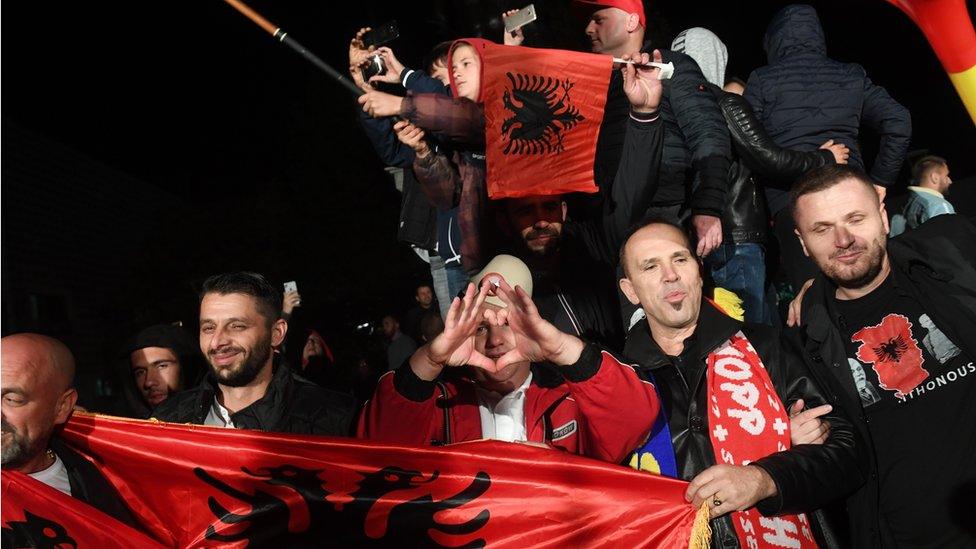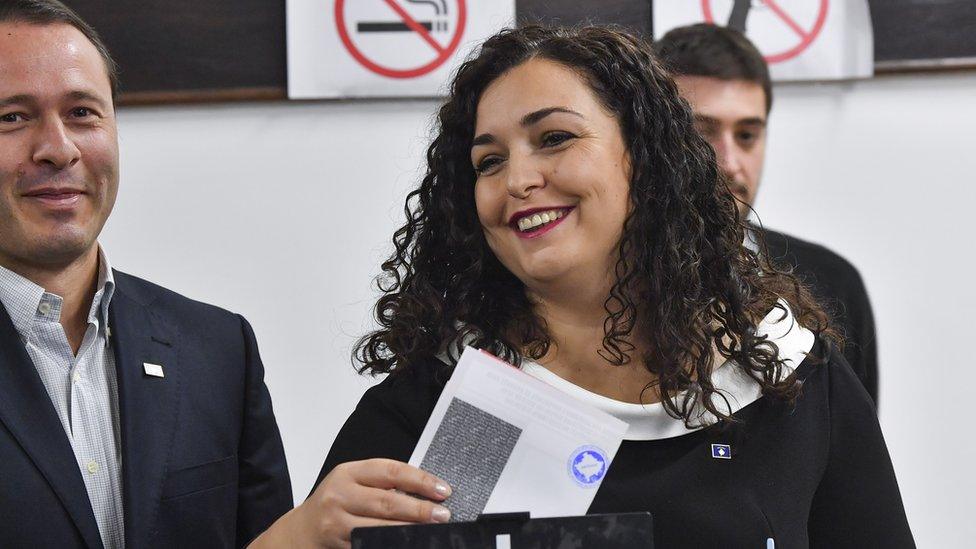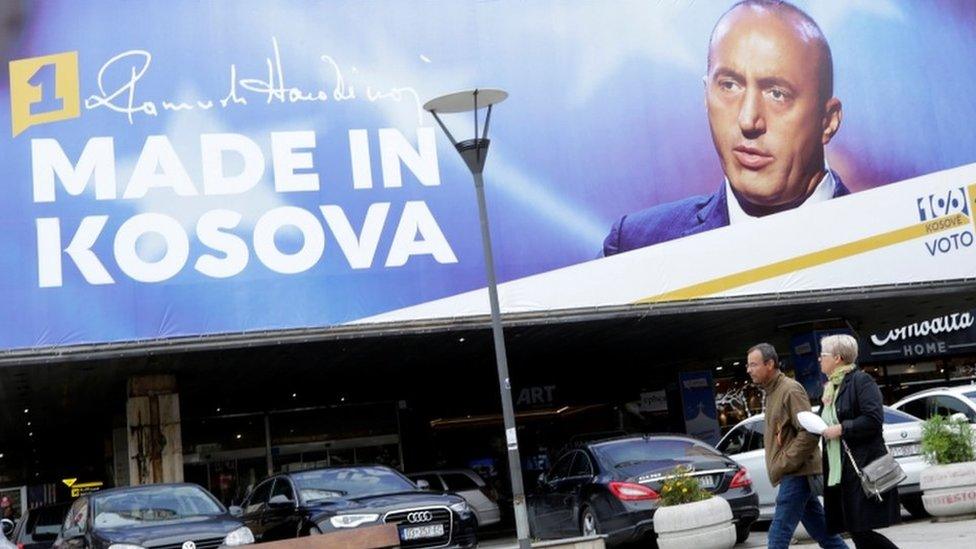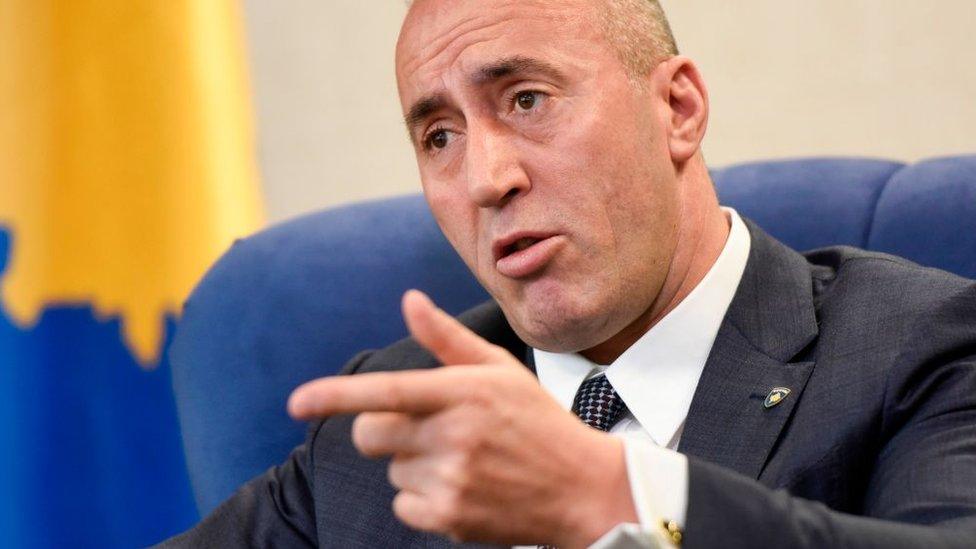Kosovo election: Opposition parties claim win
- Published

Vetevendosje supporters wave Albanian flags as they celebrate in the Kosovan capital Pristina
Opposition parties have claimed the greatest number of votes in Kosovo's general election.
Centre-left Vetevendosje and centre-right Democratic League (LDK) are each expected to win about 25% of the vote.
The election was called in July when Prime Minister Ramush Haradinaj resigned to face questioning by a war crimes court in The Hague.
It is the fourth election since Kosovo declared independence from Serbia in 2008.
Serbia does not recognise the country and with Russia has blocked it from becoming a member of the UN and other international bodies.
In talks before the vote, Vetevendosje and the LDK failed to agree on forming a coalition.
Both parties promise to tackle unemployment and fight crime and corruption.
Vetevendosje's leader Albin Kurti said he would "knock on the LDK door" on Monday to start negotiations.

Can the biggest parties work together?
By Guy De Launey, Balkans Correspondent
The two parties celebrating the most are very different in character.
Vetevendosje is an anti-establishment Albanian nationalist movement. Its MPs are notorious for disrupting sessions of the National Assembly by lobbing tear gas. The LDK is Kosovo's oldest party - and hopes to install lawyer Vjosa Osmani as the first female prime minister.
The two parties failed to reach a coalition agreement before the election - and may take many weeks of negotiations to form a new government.
Meanwhile, the former leaders of the Kosovo Liberation Army are licking their electoral wounds. Voters held their parties largely responsible for endemic corruption and a lack of development.

Mr Haradinaj's party meanwhile is set to win only 10% of the vote.
The 51-year-old served as a rebel commander in the 1998-1999 Kosovo conflict, which eventually led to Kosovo declaring independence.
Mr Haradinaj stepped down so that he could attend court as an ordinary citizen - but was free to stand for re-election because no indictments have yet been announced.
He denies war crimes and has been tried and acquitted twice before at the UN tribunal.

The LDK hopes Vjosa Osmani will become Kosovo's first female prime minister
Last November, he imposed a 100% tariff on imports from Serbia in retaliation for Belgrade blocking Kosovo's membership of international organisations.
He has ignored pleas from Brussels to revoke the tariffs.
Mr Kurti has said his party will abolish the tariffs but will introduce other retaliatory measures against Serbia.
Meanwhile Serbia's President Aleksandar Vucic says Belgrade will hold talks with the Kosovan government once the tariffs have been removed.
On Thursday US President Donald Trump appointed the US ambassador to Germany, Richard Grenell, as special envoy for peace negotiations between Kosovo and Serbia.
Kosovo is recognised by most of the west but it needs Belgrade, Russia and China to accept its statehood to get a seat in the United Nations.
The conflict that won't go away: BBC correspondents explain the Kosovo war two decades on
- Published5 October 2019

- Published19 July 2019
